Today I am welcoming David Frauenfelder to an author interview. Up to now I have been staying this side of the Atlantic for these interviews, but it’s time to go across the pond now. I first came across David’s writing towards the end of 2013, and have been following as he has tackled a couple of different genres.
Review link – Skater in a Strange Land
Review – The Skater and the Saint
Review – The Mirror and the Mage
 Q. David, I first came across you in connection with Skater in a Strange Land, about which I wrote “a sort of cross-over science-fiction / fantasy book that mostly defies description but kept me reading avidly to the end“. What drew you to write about Borschland, a fictitious continent appearing from time to time in the Indian Ocean?
Q. David, I first came across you in connection with Skater in a Strange Land, about which I wrote “a sort of cross-over science-fiction / fantasy book that mostly defies description but kept me reading avidly to the end“. What drew you to write about Borschland, a fictitious continent appearing from time to time in the Indian Ocean?
A. I am an inveterate reader of maps and creator of worlds. I have pretty often had dreams where I am looking at a map and suddenly I dive into the place the map represents.
If I am in a boring meeting, I will sketch a map of an imaginary place from whatever is percolating in my brain at the time. If something like Dasht-e-Kavir comes out (a real desert in Iran), the world will be a wasteland with Persian and Arabic place names.
From there, it’s a very quick step to imagining peoples, cultures, and history. It helps that as a child I read all the fantasy standards from Lloyd Alexander to Ursula K. LeGuin.
Add in academic training in languages and literature (Greek and Latin primarily), plus a bit of travel, and you’ve got a walking world generator.
Q. Borschland is a truly zany place, lovingly described in your books, with its own language (rather like Dutch), religious heritage, social hierarchy, and economy. Adjacent lands are populated with their own species. Where did the different ingredients all come from? And why ice hockey as a national sport and addiction?
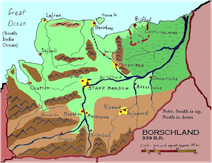 A. I am utterly enchanted by the zaniness of human beings. If you read anything about anywhere that is an actual place in the world, it is pretty much full of unbelievably entertaining and improbable names and events. I was just reading about anthropologists who analyzed the grammar of Aboriginal languages in 19th century Australia. Can you imagine what their lives must have been like?
A. I am utterly enchanted by the zaniness of human beings. If you read anything about anywhere that is an actual place in the world, it is pretty much full of unbelievably entertaining and improbable names and events. I was just reading about anthropologists who analyzed the grammar of Aboriginal languages in 19th century Australia. Can you imagine what their lives must have been like?
At the same time, human beings aren’t random. There is a kind of interior logic to our zaniness.
So, for Borschland, which began very innocently in my teenage years as a place where I could run a fantasy ice hockey league, once I discerned the interior logic of the place, I began to feel complete freedom in making Borschland totally and completely itself with no apologies.
I chose ice hockey because Borschland was named after a friend of mine who introduced me to the sport. Because of him, I became a lifelong fan, though I have never so much as laced up ice skates. Zany, yet with its own logic.
Hockey is a wonderful sport, with its own culture and improbabilities. There’s so much possibility for story there.
Much of the rest comes from the idea of the phase shift, which is a physically impossible but for me essential ingredient of the world– Borschland and its continent, as you say, “from time to time” phase out of this world and into a parallel universe. Figuring out how a culture would react to such a state of affairs drove a lot of what Borschland ended up being.
And you do have to be comfortable with talking bears.
Q. More recently you have branched into YA fiction with The Mirror and the Mage, set in the very early period of Rome and blending fantasy, fun and educational elements. Can you tell us a little about this new endeavour?
 A. As a teacher of Latin to adolescents, I’m constantly looking for ways to bring my subject alive, and for quite a long time I had an idea about making the system of Latin grammar a system of magic. That way, I figured, a student could come at the rather dry idea of grammar from the point of view of an exciting story and perhaps see what the Romans knew, which is that their language was a source of power for them, and that, more generally, language simply is power.
A. As a teacher of Latin to adolescents, I’m constantly looking for ways to bring my subject alive, and for quite a long time I had an idea about making the system of Latin grammar a system of magic. That way, I figured, a student could come at the rather dry idea of grammar from the point of view of an exciting story and perhaps see what the Romans knew, which is that their language was a source of power for them, and that, more generally, language simply is power.
For years the idea remained just that, until I saw how I could incorporate the magic system into an actual though quite legendary time in Roman history, the moment when the Romans overthrew the Etruscans and became a republic in the late 6th century BC.
The liberator of the Romans is Lucius Junius Brutus, and what he did as a young man and politician is duly written down by historians. But what about Lucius Junius Brutus the teenager? Now there was a completely blank slate on which I could create an adventure.
Q. So there are two quite different fiction series here, both of which are clearly very much alive in your imagination. You have also explored non-fiction writing a little. Are there other things you know you would like to write about as and when time permits?
A. Find me a MacArthur grant, Richard, and I’ll answer this question. To write everything I dream about, I would need quite a bit more time and freedom.
Q. Your author profile on Goodreads (https://www.goodreads.com/author/show/6801887.D_W_Frauenfelder) mentions that you teach classical languages, and have a great enthusiasm for the ancient world, especially as it expressed itself in myth. This comes over very clearly in The Mirror and the Mage, focusing as it does on a period of Rome’s history which is less familiar to many than the time of the Caesars. To what extent does your teaching career intersect with writing?
A. For much of my thirties and forties I was what you might call a populist scholar, which means that I wrote about my field of speciality, Greek mythology, in a way which aspired to be engaging and accessible to a general audience. That culminated in an online course I wrote for gifted 10-13 year-olds, Growing Up Heroic: Adventures in Greek Mythology (http://tip.duke.edu/node/160). It was a course that concentrated on the adolescent characters in ancient Greek stories.
Nowadays, I’m hoping that The Mirror and the Mage (and its sequel, The Staff and the Shield, which will release this year) will interest a young adolescent readership.
 Q. Your blog (http://myth.typepad.com/breakfast/) contains an eclectic mix of posts addressing your very wide range of interests, including a look at ancient Greek gods by way of modern psychometric methods (Zeus Is My Type!, available through Smashwords at https://www.smashwords.com/books/view/482593 and other places). Now, it is clear from the blog that you greatly value historical accuracy and credibility in a book. How do you carry out research for your own writing?
Q. Your blog (http://myth.typepad.com/breakfast/) contains an eclectic mix of posts addressing your very wide range of interests, including a look at ancient Greek gods by way of modern psychometric methods (Zeus Is My Type!, available through Smashwords at https://www.smashwords.com/books/view/482593 and other places). Now, it is clear from the blog that you greatly value historical accuracy and credibility in a book. How do you carry out research for your own writing?
A. I feel as if I’ve learned just enough to be able to create plausible lies. I’m always waiting for a reader to tell me that a historical detail in my book is wrong, or that hockey players don’t do that in real life. But my philosophy is, if you spend your whole life making sure you’re accurate, you’ll end by not writing very much fiction.
Q. How about locating your books? You have lived on both west and east coasts of America. Do you find either of these places emerging in your writing? Or possibly other places you have visited?
A. I find myself mostly incapable and uninterested in writing about where I have lived, less so places I have visited. Greece is a wonder, for example. I have set a novel there that takes place in 2000 BC. I felt free to delve that deep because in Greece I feel as if time is all one. Nothing dies. You can hear voices from millennia in the past. It’s eerie, but altogether exhilarating. I cannot sleep in Greece. I’m too inundated with spirits.
Q. I happen to know that there are follow-up novels in both the Skater and the Mirror series coming up before too long. How much are you willing to tell us about these just now?
A. I’m proud to say that I just finished the first draft of The Staff and the Shield. It introduces the historical idea that Lucius Junius Brutus faked being a simpleton (this is the meaning of “Brutus”) in order to escape the jealous eye of the Etruscan king. While playing this role in real life, Lucius has a grand adventure in the Etruscan Land of the Dead, a dangerous place of monsters and goddesses.
Book 3 of the Skater series, still in preliminary drafts, is called The Last Phase Shift, and discusses what happens when a group of scientists try to find a way to stop phase shifts on Borschland’s continent. It would seem as if hockey could not come in here, but it absolutely does. Also, so does the east coast of the United States. Hopefully not in a boring way.
Finally, is there anything you would like to add which we have not touched on so far?
A. Yes. If your readers have persevered this far, I would like to bestow upon each’s forehead a big gold star. And I would also like to thank you, sir, for your generous hospitality. It’s been a treat.
Thanks David for taking the time today to talk with me. All the best for you in the future.
Links:
Blog: http://myth.typepad.com/breakfast/
Facebook: https://www.facebook.com/davefrau
True North Writers Cooperative: https://www.facebook.com/pages/True-North-Writers-and-Publishers-Co-operative/581345541879610
Twitter: https://twitter.com/davefrau (@davefrau)
Goodreads profile https://www.goodreads.com/author/show/6801887.D_W_Frauenfelder

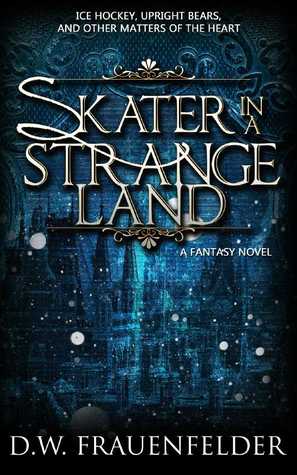


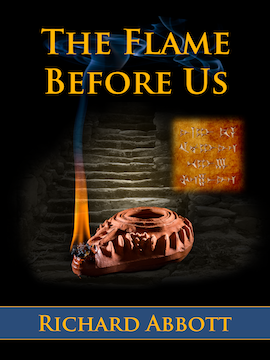 This week sees the release of The Flame Before Us in Kindle and softcover versions – preorder is available now and delivery will be shortly after.
This week sees the release of The Flame Before Us in Kindle and softcover versions – preorder is available now and delivery will be shortly after.
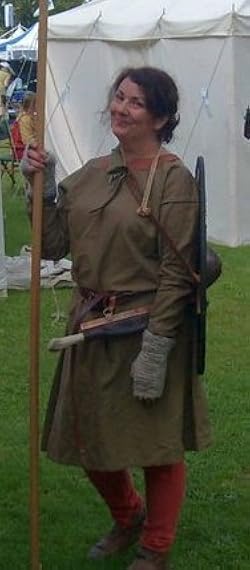 A. Well, once I had decided I wanted to write this novel, I contacted Regia Anglorum (
A. Well, once I had decided I wanted to write this novel, I contacted Regia Anglorum ( A. I am very good friends with all of my admins, reviewers and members, however, I have met up with lovely Louise Rule who lives about an hour and a half’s drive from me, and Jayne Smith who lives nearby and there are loads of people I’d love to meet up with. The friends I have that have been in my life before I started writing and joined the literary world are not really booky people, well not in the same sense and not to the degree that I am involved. However, I am so lucky that in June of this year, I shall be travelling out to Alaska to meet with the person I call my ‘other head’ Lisl Zlitni, who works with me and our other head, Louise Rule. We call ourselves Three Heads on One body! I am absolutely stoked to be going to Anchorage to meet up. This is such an amazing opportunity and I am so grateful to have been given this chance to meet up with my friends in such an awesomely intriguing place.
A. I am very good friends with all of my admins, reviewers and members, however, I have met up with lovely Louise Rule who lives about an hour and a half’s drive from me, and Jayne Smith who lives nearby and there are loads of people I’d love to meet up with. The friends I have that have been in my life before I started writing and joined the literary world are not really booky people, well not in the same sense and not to the degree that I am involved. However, I am so lucky that in June of this year, I shall be travelling out to Alaska to meet with the person I call my ‘other head’ Lisl Zlitni, who works with me and our other head, Louise Rule. We call ourselves Three Heads on One body! I am absolutely stoked to be going to Anchorage to meet up. This is such an amazing opportunity and I am so grateful to have been given this chance to meet up with my friends in such an awesomely intriguing place.
 I have enjoyed watching birds since childhood, and at one time owned some old vinyl records with birdsong on them. I was also a junior member of the RSPB, and had a beautiful card game with pictures of British birds. Our garden in north London is a great place to see birds, and I am perpetually surprised at the range of visitors (both regular and occasional) we get.
I have enjoyed watching birds since childhood, and at one time owned some old vinyl records with birdsong on them. I was also a junior member of the RSPB, and had a beautiful card game with pictures of British birds. Our garden in north London is a great place to see birds, and I am perpetually surprised at the range of visitors (both regular and occasional) we get.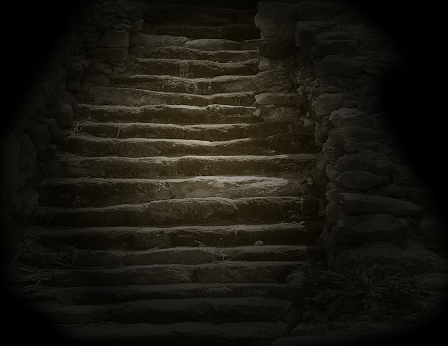 First, the picture. These are in fact Late Bronze Age steps, though not from the specific place described in the story. These are from Megiddo, somewhat to the north of Ramoth Hurriy where the story places them. Where do the steps go in The Flame Before Us? That’s a portion which I have not yet shared in any extracts…
First, the picture. These are in fact Late Bronze Age steps, though not from the specific place described in the story. These are from Megiddo, somewhat to the north of Ramoth Hurriy where the story places them. Where do the steps go in The Flame Before Us? That’s a portion which I have not yet shared in any extracts…

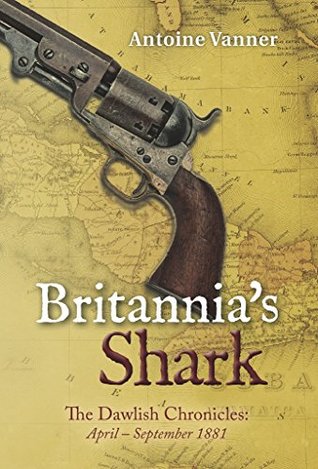
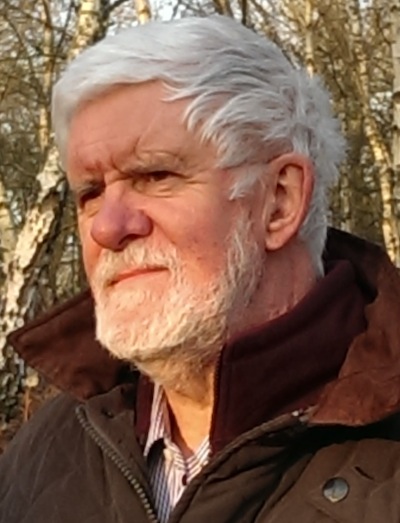 I’m fascinated by the political, social and economic progress made by the Western World in the second half of the 19th century and I’m equally intrigued by the gigantic steps taken by science and technology at the same time. Like most Baby Boomers I had grandparents who had been born and had come to maturity in the last decades of that century and from them I learned enough to regard it as “history you can touch”. The scientific progress – achieved by titanic figures like James Clerk Maxwell, Pasteur, Mendeleev, Darwin, Röntgen, Koch, Ronald Ross, Lord Kelvin and a myriad others – transformed understanding of the world and heroic engineers – such as Edison, Tesla, Marconi, Parsons, Bell, Bessemer, Roebling, Greathead, Bazalgette and many more – established technologies that have flourished and spun off further developments ever since.
I’m fascinated by the political, social and economic progress made by the Western World in the second half of the 19th century and I’m equally intrigued by the gigantic steps taken by science and technology at the same time. Like most Baby Boomers I had grandparents who had been born and had come to maturity in the last decades of that century and from them I learned enough to regard it as “history you can touch”. The scientific progress – achieved by titanic figures like James Clerk Maxwell, Pasteur, Mendeleev, Darwin, Röntgen, Koch, Ronald Ross, Lord Kelvin and a myriad others – transformed understanding of the world and heroic engineers – such as Edison, Tesla, Marconi, Parsons, Bell, Bessemer, Roebling, Greathead, Bazalgette and many more – established technologies that have flourished and spun off further developments ever since.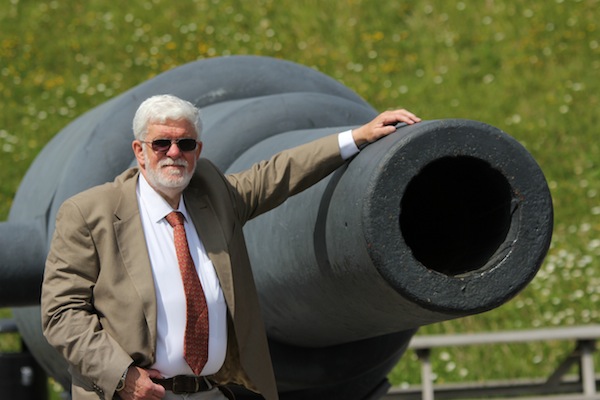 A. There is significant military experience in the family, both direct and via in-laws, and some of this very obviously rubs off. I myself have worked in a number of trouble spots and indeed once managed a company in an area torn by a vicious terrorist campaign, in which our operations, and I myself, were targets. One gets used to living with, and planning for, some very nasty risks. And just when I thought it was safe, when I retired about ten years ago, I found myself caught on a personal basis in a murderous attack in Africa in which eight were killed. A 200 yard sprint under AK-47 fire proved Churchill’s alleged statement that “There’s nothing as exhilarating as being shot at – and missed!”
A. There is significant military experience in the family, both direct and via in-laws, and some of this very obviously rubs off. I myself have worked in a number of trouble spots and indeed once managed a company in an area torn by a vicious terrorist campaign, in which our operations, and I myself, were targets. One gets used to living with, and planning for, some very nasty risks. And just when I thought it was safe, when I retired about ten years ago, I found myself caught on a personal basis in a murderous attack in Africa in which eight were killed. A 200 yard sprint under AK-47 fire proved Churchill’s alleged statement that “There’s nothing as exhilarating as being shot at – and missed!”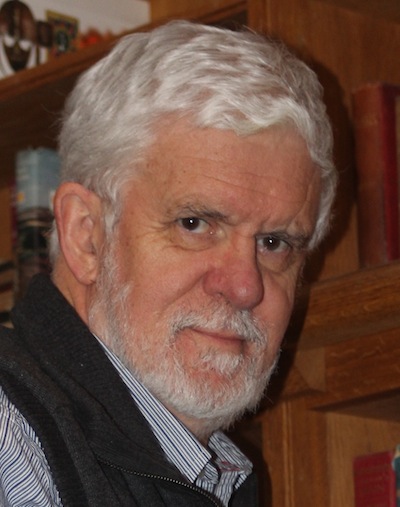 And finally – Thanks Richard for taking the time to interview me! It’s been as much a pleasure to answer your questions as it is to know you and your work!
And finally – Thanks Richard for taking the time to interview me! It’s been as much a pleasure to answer your questions as it is to know you and your work!